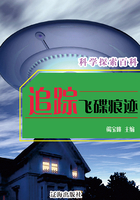“Where have you been racing about?” said the father, “Why have you forgotten your work? I always said that you would never come to anything.” “Be easy, father, I will make it up.” “Make it up indeed,” said the father angrily, “thats no use.” “Take care, father, I will soon hew that tree there, so that it will splitsplit v.劈开, (使)裂开, 分裂, 分离.” Then he took his plaster, rubbed the axe with it, and dealt a mighty blow, but as the iron had changed into silver, the edge bent. “Hi, father, just look what a bad axe youve given me, it has become quite crooked.” The father was shocked and said, “Ah, what have you done! Now I shall have to pay for that, and have not the wherewithalwherewithal n.(常做the ……)必要的资金, and that is all the good I have got by your work.” “Dont get angry,” said the son, “I will soon pay for the axe.” “Oh, you blockheadblockhead n.笨蛋, 傻子,” cried the father, “Wherewithwherewith adv.用什么, 用那个, 以其 will you pay for it? You have nothing but what I give you. These are students tricks that are sticking in your head, you have no idea of woodcuttingwoodcutting n.伐木, 木刻.”
“你上哪儿乱跑去了?”父亲问,“怎么忘记了干活儿?我早说过,你干不了嘛。”“别生气,爸爸,我会赶上的。”“对,赶上,真不像话!”父亲生气地说。“你看好了,爸爸,我立刻砍倒这树,叫它哗地一声折断!”说着,他取出布条,轻轻擦拭斧头,然后猛地一斧砍去。可是,由于铁已变成银子,斧刃马上卷了口。“嗨,爸爸,瞧你替我借的什么孬斧头,完全变了形啦!”父亲大惊失色,说:“唉,你干的好事!这下我得赔人家斧头,却不知道拿什么赔,这就是你干活儿给我的好处!”“别生气,”儿子回答,“斧头我赔就是喽。”“呵,你这傻瓜,”父亲吼道,“你打算拿什么赔?我不给你,你什么都没有。你满脑袋书呆子的怪想法,对砍柴一窍不通!”
After a while the boy said, “Father, I can really work no more, we had better take a holiday.” “Eh, what,” answered he, “do you think I will sit with my hands lying in my laplap n.(坐时的)大腿前部, 膝盖 like you. I must go on working, but you may take yourself off home.” “Father, I am here in this wood for the first time, I dont know my way alone. Do go with me.” As his anger had now abatedabate vi.(数量、程度等)减少, 减轻, 失效, 缓和,(法令等)被废除, the father at last let himself be persuaded and went home with him. Then he said to the son, “Go and sell your damaged axe, and see what you can get for it, and I must earn the difference, in order to pay the neighbor.” The son took the axe, and carried it into town to a goldsmithgoldsmith n.金匠, who tested it, laid it in the scales, and said, “It is worth four hundred talers, I have not so much as that by me.” The son said, “Give me what thou have, I will lend you the rest.” The goldsmith gave him three hundred talers, and remained a hundred in his debt. The son thereuponthereupon adv.于是, 因此 went home and said, “Father, I have got the money, go and ask the neighbor what he wants for the axe.” “I know that already,” answered the old man, “one taler, six groschengroschen n.奥地利的青铜币, 德国的10便镍币.” “Then give him him two talers, twelve groschen, that is double and enough. See, I have money in plenty.” And he gave the father a hundred talers, and said, “You shall never know want, live as comfortably as you like.” “Good heavens,” said the father, “how have you come by these riches?” The boy then told how all had come to pass, and how he, trusting in his luck, had made such a packet.But with the money that was left, he went back to the high school and went on learning more, and as he could heal all wounds with his plaster, he became the most famous doctor in the whole world.
过了一会儿,小伙子又说:“爸爸,我再不能干了,咱们还是收工吧。”“嗨,什么话!”父亲说,“你以为我愿意像你一样游手好闲?我还必须干,要回去你自己滚!”“爸爸,我是头一回进林子来,一个人不认识路,你陪我走吧。”父亲的怒气已平息了,终于让儿子说服,一块儿收工回家去。到家后,他告诉儿子:“把这坏斧头拿去卖了吧。看看能卖多少钱,不够的得由我来挣,以便赔邻居一把新斧头。”儿子拿着斧头去找城里的金匠,银匠验了银斧头的成色,放在天平上一称,说:“值四百个银元,可这么多现钱我没有。”“您有多少给多少吧,”小伙子说,“其余的我存在您这里。”金匠给了他三百银元,还欠他一百。随后,小伙子回到家,说:“爸爸,我有钱啦,去问一下邻居他那把斧头值多少吧!”“这个我知道,”父亲回答,“一个银元加三枚铜钱。”“那咱们给他两银元十二个铜板,也就是加倍该够了吧?你瞧,我有的是钱了!”小伙子马上给父亲一百银元,说,“你再不会缺钱花啦,好好享享福吧!”“我的上帝,”老人惊呼,“你怎么得到这些财富的啊?”于是,儿子对他讲了事情的全部经过,说他是由于对幸福充满信心,才有了这么大的收获。小伙子又用剩下的钱进了高等学校继续学习。后来,他用那布条治愈所有的伤口,成了全世界鼎鼎大名的大夫。















